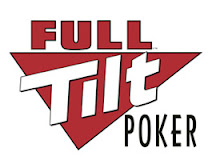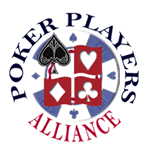
At the final table of this year's World Series of Poker*, the media consensus was that there was only one pro at the table: Mike Matusow. We've since learned that this year's champ, Joseph Hachem, gave up a 13-year chiropractic career three years ago to play poker for a living. The other seven players at the final table won over a million dollars each. It's a safe bet that a few of them now consider themselves poker professionals. What does that mean?
Three Myths About Playing Poker Professionally
Myth #1: Either I'm a Pro or I'm Not
Consider the following players. Which ones are pros and which are amateurs?
Adam
Adam plays the tournament trail full-time. He's up thousands one month, and broke the next. He's always borrowing money from fellow poker players. He has no life outside the poker world and constantly thinks, "I wish I had some skills and experience that would allow me to get a normal job."
Betty
By day, Betty's an accountant making $50K a year. She plays poker in her spare time. Some years she earns $20K playing poker, other years she earns $100K. She rarely has a losing year.
Charlie
Charlie picked up the game a year ago, entered his first tournament - the prestigious "WPT London" - and won it with flair and showmanship. He netted $500K and got a ton of TV coverage. He blew through $350K in the next 11 months playing every big event with no cash finishes. He's still got a bankroll, thanks to some juicy endorsement contracts from an online site and a beer company that guarantee him $1 Million a year for the next three years. All he has to do is continue to play in every major tournament and endorse their products.
Debbie
Debbie has a bankroll of $500K, She makes (or loses) anywhere from -$50K to +$200K per year playing a very erratic schedule. That schedule is structured around the good games, whether they're offline, online or on the tourney trail. She travels to far-off lands whenever she feels like it, and has plans to settle down and start a family. Someday. But not now.
Eddie
Eddie only plays online, He clocks in, plays exactly eight hours a day, five days a week, at four simultaneous tables no higher than $5-$10 limit hold 'em. He earns a surprisingly consistent $100/hr, takes the family on vacation twice a year, plays tennis, and attends opera on the weekends.
Myth #2: I Would be so Much Happier if I Could Just Play Poker Full Time
TRUE: It's fun playing an hour or two each day.
BUT: It might not be so fun playing all the time to the exclusion of other interests, family and friends.
TRUE: It's low-stress and entertaining, playing as a hobby.
BUT: It might be very stressful if you have to grind it out to pay the bills every month.
TRUE: Those big tourney winners on TV live like rock stars.
BUT: What about the other 99% of the players you don't see, all of whom are competing for your dream.
Myth #3: I Don't Need a Big Bankroll to be a Pro
Check the long list of Former World Champions who have gone a full year without making the final table of a major event. As of this writing, it takes roughly $500K to enter all the major tournaments in a year.
Ask your favorite pro how many times he or she has gone bust in their career, or how many times they have been hit up for a sizable cash loan from one of their good friends.
Poker is a great game; it's tons of fun, and it has never been as potentially profitable as it is today. But try to keep it in perspective.
Poker doesn't have to consume your life. You can make a good chunk of change playing poker, and you can do it without giving up all the good things you have going in your life.
Financially, mentally and socially, you are better off making poker fit into your life rather than the other way around.
Getting back to the players in the introduction, it's clear that Eddie is a pro. And it's equally clear (to me anyway) that Adam is definitely not, even though he thinks he is, and so does the general public. Adam is a dime a dozen in the poker world. You've even seen him and his ilk on TV a number of times. As for the other three, I don't know whether I'd call them pros or not, but I sure wouldn't mind being in their shoes.
"Professional" is just a word. Being a professional poker player is not the same thing as being a successful poker player.
Bottom line: You don't need to be a professional to be a poker champion.
* World Series of Poker and WSOP are trademarks of Harrah's License Company, LLC ('Harrahs'). Harrah's does not sponsor or endorse, and is not associated or affiliated with FullTiltPoker.com or its products, services, promotions or tournaments.
Rafe Furst
 Let's say an early position opponent - preferably a loose opponent - raises and gets called by one or more players. Now there's a lot of money in the pot. More importantly, the players who simply called are unlikely to have a hand that would merit calling a big re-raise. If they had such a hand, they probably would have raised instead of flat calling in the first place. Now it gets to me.
Let's say an early position opponent - preferably a loose opponent - raises and gets called by one or more players. Now there's a lot of money in the pot. More importantly, the players who simply called are unlikely to have a hand that would merit calling a big re-raise. If they had such a hand, they probably would have raised instead of flat calling in the first place. Now it gets to me.























